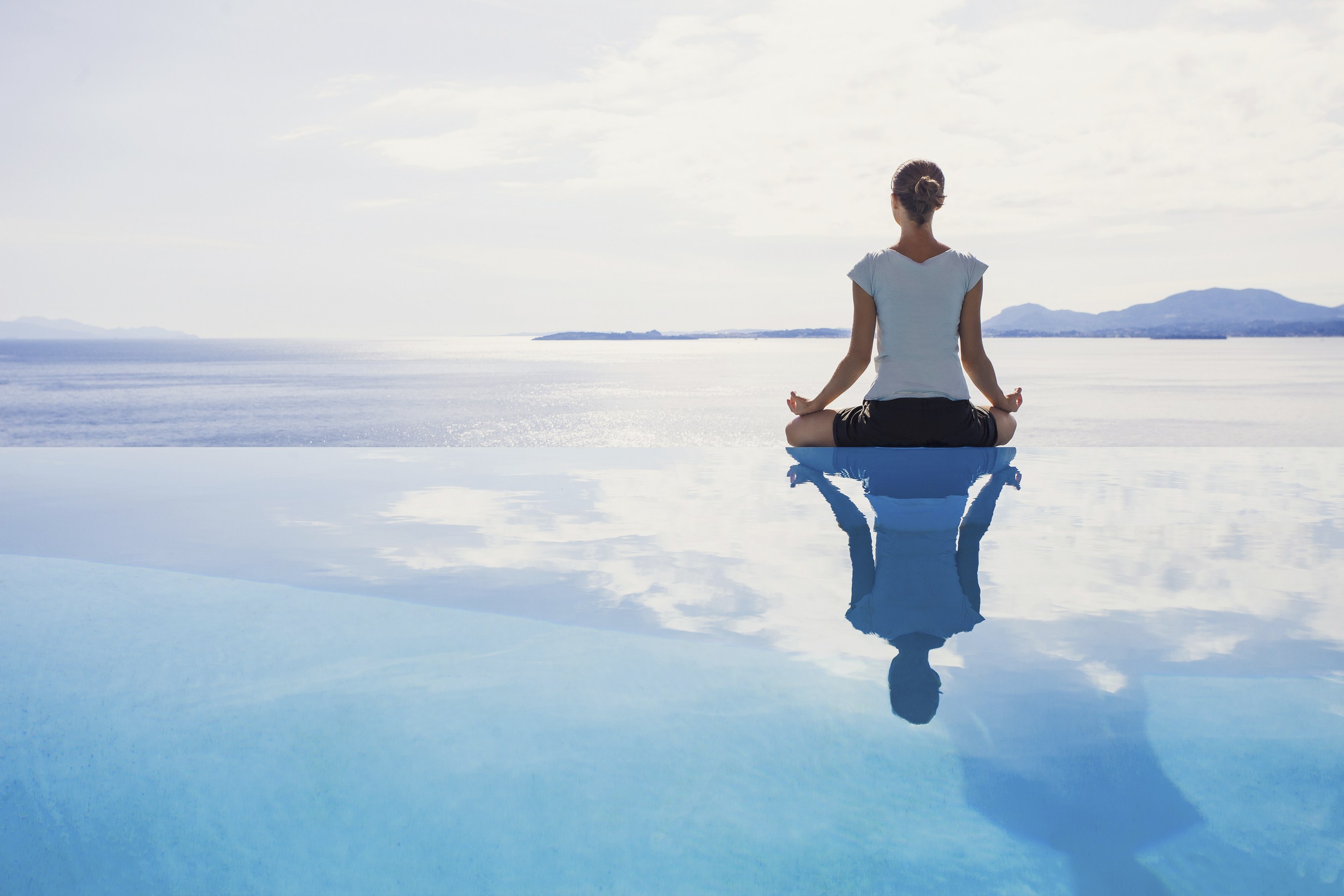Myths about meditation debunked...

Inspired by Davidji's text in Destressifying as well as many other meditation teachers' wisdom, including my own experience, I decided to demystify and help ease the innitial (or ongoing) resistance common to most of us as we give a thought or try to practice meditation. So, here are some of the most frequent false myths or, better said, our rationalizations about meditation debunked:
- Meditation requires having my mind without thoughts and is a senselss mission for my overthinking and "constantly-on-a-run" head
So here is one question for you: would you ever ask from your heart to stop beating? Well, the same goes for our brain: we don't want it to stop thinking; on contrary, this is its very function and a very important one for the quality of our lives. But, instead of being its servants, it is us who want to be its masters, directing with our own intention its activity. And, of course, we want to be good at this. The same is true for meditation, the goal is not to clear our brain of thoughts but rather to practice learning to navigate our "head space" so that it allows our thoughts to come and go – we open the door for them and become their host while on the visit, sending them off on their marry ways afterwards just as we do with our „real“ guests (the ones we like as well as the ones we like a little less;)
- Meditation is only for special, super calm people and, thus, not for a hyperactive and "hyperthinking" me
While this comes easier for some than others, absolutely anyone can sit in the meditation and, as a matter of fact, there is not one correct way of doing this. There is a saying that the only wrong meditation is the one that never happened because it was never attempted. Everything else is subject to progress (rahter than perfection) and there is no specific goal to achieve nor destination to arrive at such as being „right there and doing it just right“.
- Meditation is a religious (or better yet, cult) ritual and I am expected to pray to Buddha
Meditaiton is as secular, spiritual, or religious practice as much as the one practicing chooses it to be. In fact, meditation is very pragmatic and practical activity for me. The very word meditation (bhavana) in its original language (sanscript) means a mental training... so, the same way we are strengthening our physical muscles in the gym, with meditation we are improving our mental fitness. For example, during the basic meditation training, practitioners are strengthening their power of concentration by focusing on object of attention and their experience of the present moment (i.e. movement of breath through body and/or sounds around them).
- If I meditate long and often enough, I will stop getting angry and will learn how to rise and levitate above life and others
Ooohh, how I would like this to be true 😊 ... And, I admit, just as many other meditators, I also I fell in this trap during my first years in practice, believing that meditating every day makes me immune to everyday stress and frustrations. The truth is that, after all these years of meditating, I still have moments when I am glad that those cutting before me in traffic cannot hear me (without going into details, lol). As Davidji said, although meditation does not keep me from being a jerk, it helps me recognize when I am being one and offers me a choice what to do with it next. It gives me a clearer insight into a state of my inner world and a window of opportunity to recognize those days when it is better to breathe deeply, stay watchful of possible triggers, practice restrain pen and tongue instead of reacting to life as it comes my way, and practice meditation just a bit longer that day...
- I need to sit in a complete silence and peace in order to meditate...and, have a lot of time (which I don't have)
There are many ways to meditate and I will write about few of these types in my next blog. One of these is my keystone practice of mindfulness meditation, which taught me that everything can be and is meditation if I am fully present for it in the here and now so I often make my jogging time a meditation by practicing mindfulness while I am running. But, what I really want to dismantle is our excuse in „not having time for it“. There is a Zen saying: I meditate every day for half an hour, except when I am really busy; then I meditate for an hour. And, I definetely agree, 5 minutes in a day goes by in a blink of an eye... except when I meditate, then it last veeery looooong which is the reason why many people give up. However, taking three deep breaths, mindfully observing this experience of breath going in and out of my body is a ("3-breath") meditation practice that takes 30 seconds to do... and if we do this consistently, 30 secs will turn in 3 minutes, which will become 5 minutes ...
Somewhere on the path of our collective evolution and our personal lives we lost our capacity to sit for sitting and being with ourselves. Actually this concept has become totally apsurd to us and the paradox is obvious (I think..?). Meditation helps me be ok with myself and comfortable in my own skin, it gives me a rest from running after fulfillment through some stimulation outside of me and helps me recognize peace that (only) comes from within. So, instead of me constantly running after time, meditation slows down time for me and helps me set my priorities in a way that they work for me and my emotional and mental wellness. So, let's meditate... 😊